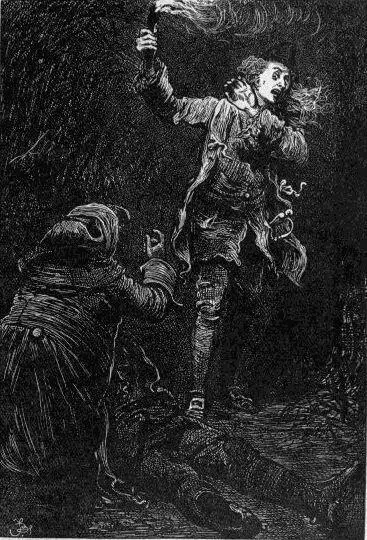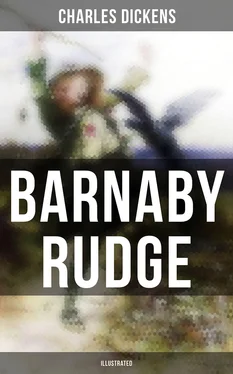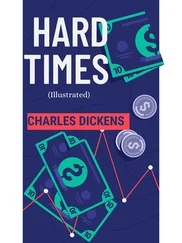Charles Dickens - BARNABY RUDGE (Illustrated)
Здесь есть возможность читать онлайн «Charles Dickens - BARNABY RUDGE (Illustrated)» — ознакомительный отрывок электронной книги совершенно бесплатно, а после прочтения отрывка купить полную версию. В некоторых случаях можно слушать аудио, скачать через торрент в формате fb2 и присутствует краткое содержание. Жанр: unrecognised, на английском языке. Описание произведения, (предисловие) а так же отзывы посетителей доступны на портале библиотеки ЛибКат.
- Название:BARNABY RUDGE (Illustrated)
- Автор:
- Жанр:
- Год:неизвестен
- ISBN:нет данных
- Рейтинг книги:5 / 5. Голосов: 1
-
Избранное:Добавить в избранное
- Отзывы:
-
Ваша оценка:
- 100
- 1
- 2
- 3
- 4
- 5
BARNABY RUDGE (Illustrated): краткое содержание, описание и аннотация
Предлагаем к чтению аннотацию, описание, краткое содержание или предисловие (зависит от того, что написал сам автор книги «BARNABY RUDGE (Illustrated)»). Если вы не нашли необходимую информацию о книге — напишите в комментариях, мы постараемся отыскать её.
Barnaby Rudge is a story of a forbidden love in the time of great London riots in 1780. Both Edward's father, John Chester, and Emma's uncle, the Catholic Geoffrey Haredale – these two are sworn enemies – oppose their union after Sir John untruthfully convinces Geoffrey that Edward's intentions are dishonourable. Sir John intends to marry Edward to a woman with a rich inheritance, to support John's expensive lifestyle and to pay off his debtors. Edward quarrels with his father and leaves home for the West Indies.
BARNABY RUDGE (Illustrated) — читать онлайн ознакомительный отрывок
Ниже представлен текст книги, разбитый по страницам. Система сохранения места последней прочитанной страницы, позволяет с удобством читать онлайн бесплатно книгу «BARNABY RUDGE (Illustrated)», без необходимости каждый раз заново искать на чём Вы остановились. Поставьте закладку, и сможете в любой момент перейти на страницу, на которой закончили чтение.
Интервал:
Закладка:
‘There’s blood upon him,’ said Barnaby with a shudder. ‘It makes me sick!’
‘How came it there?’ demanded Varden.
‘Steel, steel, steel!’ he replied fiercely, imitating with his hand the thrust of a sword.
‘Is he robbed?’ said the locksmith.
Barnaby caught him by the arm, and nodded ‘Yes;’ then pointed towards the city.
‘Oh!’ said the old man, bending over the body and looking round as he spoke into Barnaby’s pale face, strangely lighted up by something that was NOT intellect. ‘The robber made off that way, did he? Well, well, never mind that just now. Hold your torch this way—a little farther off—so. Now stand quiet, while I try to see what harm is done.’
With these words, he applied himself to a closer examination of the prostrate form, while Barnaby, holding the torch as he had been directed, looked on in silence, fascinated by interest or curiosity, but repelled nevertheless by some strong and secret horror which convulsed him in every nerve.
As he stood, at that moment, half shrinking back and half bending forward, both his face and figure were full in the strong glare of the link, and as distinctly revealed as though it had been broad day. He was about three-and-twenty years old, and though rather spare, of a fair height and strong make. His hair, of which he had a great profusion, was red, and hanging in disorder about his face and shoulders, gave to his restless looks an expression quite unearthly—enhanced by the paleness of his complexion, and the glassy lustre of his large protruding eyes. Startling as his aspect was, the features were good, and there was something even plaintive in his wan and haggard aspect. But, the absence of the soul is far more terrible in a living man than in a dead one; and in this unfortunate being its noblest powers were wanting.
His dress was of green, clumsily trimmed here and there—apparently by his own hands—with gaudy lace; brightest where the cloth was most worn and soiled, and poorest where it was at the best. A pair of tawdry ruffles dangled at his wrists, while his throat was nearly bare. He had ornamented his hat with a cluster of peacock’s feathers, but they were limp and broken, and now trailed negligently down his back. Girt to his side was the steel hilt of an old sword without blade or scabbard; and some particoloured ends of ribands and poor glass toys completed the ornamental portion of his attire. The fluttered and confused disposition of all the motley scraps that formed his dress, bespoke, in a scarcely less degree than his eager and unsettled manner, the disorder of his mind, and by a grotesque contrast set off and heightened the more impressive wildness of his face.
‘Barnaby,’ said the locksmith, after a hasty but careful inspection, ‘this man is not dead, but he has a wound in his side, and is in a fainting-fit.’
‘I know him, I know him!’ cried Barnaby, clapping his hands.
‘Know him?’ repeated the locksmith.
‘Hush!’ said Barnaby, laying his fingers upon his lips. ‘He went out to-day a wooing. I wouldn’t for a light guinea that he should never go a wooing again, for, if he did, some eyes would grow dim that are now as bright as—see, when I talk of eyes, the stars come out! Whose eyes are they? If they are angels’ eyes, why do they look down here and see good men hurt, and only wink and sparkle all the night?’
‘Now Heaven help this silly fellow,’ murmured the perplexed locksmith; ‘can he know this gentleman? His mother’s house is not far off; I had better see if she can tell me who he is. Barnaby, my man, help me to put him in the chaise, and we’ll ride home together.’

‘I can’t touch him!’ cried the idiot falling back, and shuddering as with a strong spasm; ‘he’s bloody!’
‘It’s in his nature, I know,’ muttered the locksmith, ‘it’s cruel to ask him, but I must have help. Barnaby—good Barnaby—dear Barnaby—if you know this gentleman, for the sake of his life and everybody’s life that loves him, help me to raise him and lay him down.’
‘Cover him then, wrap him close—don’t let me see it—smell it—hear the word. Don’t speak the word—don’t!’
‘No, no, I’ll not. There, you see he’s covered now. Gently. Well done, well done!’
They placed him in the carriage with great ease, for Barnaby was strong and active, but all the time they were so occupied he shivered from head to foot, and evidently experienced an ecstasy of terror.
This accomplished, and the wounded man being covered with Varden’s own greatcoat which he took off for the purpose, they proceeded onward at a brisk pace: Barnaby gaily counting the stars upon his fingers, and Gabriel inwardly congratulating himself upon having an adventure now, which would silence Mrs Varden on the subject of the Maypole, for that night, or there was no faith in woman.
Chapter 4
Table of Contents
In the venerable suburb—it was a suburb once—of Clerkenwell, towards that part of its confines which is nearest to the Charter House, and in one of those cool, shady streets, of which a few, widely scattered and dispersed, yet remain in such old parts of the metropolis,—each tenement quietly vegetating like an ancient citizen who long ago retired from business, and dozing on in its infirmity until in course of time it tumbles down, and is replaced by some extravagant young heir, flaunting in stucco and ornamental work, and all the vanities of modern days,—in this quarter, and in a street of this description, the business of the present chapter lies.
At the time of which it treats, though only six-and-sixty years ago, a very large part of what is London now had no existence. Even in the brains of the wildest speculators, there had sprung up no long rows of streets connecting Highgate with Whitechapel, no assemblages of palaces in the swampy levels, nor little cities in the open fields. Although this part of town was then, as now, parcelled out in streets, and plentifully peopled, it wore a different aspect. There were gardens to many of the houses, and trees by the pavement side; with an air of freshness breathing up and down, which in these days would be sought in vain. Fields were nigh at hand, through which the New River took its winding course, and where there was merry haymaking in the summer time. Nature was not so far removed, or hard to get at, as in these days; and although there were busy trades in Clerkenwell, and working jewellers by scores, it was a purer place, with farm-houses nearer to it than many modern Londoners would readily believe, and lovers’ walks at no great distance, which turned into squalid courts, long before the lovers of this age were born, or, as the phrase goes, thought of.
In one of these streets, the cleanest of them all, and on the shady side of the way—for good housewives know that sunlight damages their cherished furniture, and so choose the shade rather than its intrusive glare—there stood the house with which we have to deal. It was a modest building, not very straight, not large, not tall; not bold-faced, with great staring windows, but a shy, blinking house, with a conical roof going up into a peak over its garret window of four small panes of glass, like a cocked hat on the head of an elderly gentleman with one eye. It was not built of brick or lofty stone, but of wood and plaster; it was not planned with a dull and wearisome regard to regularity, for no one window matched the other, or seemed to have the slightest reference to anything besides itself.
The shop—for it had a shop—was, with reference to the first floor, where shops usually are; and there all resemblance between it and any other shop stopped short and ceased. People who went in and out didn’t go up a flight of steps to it, or walk easily in upon a level with the street, but dived down three steep stairs, as into a cellar. Its floor was paved with stone and brick, as that of any other cellar might be; and in lieu of window framed and glazed it had a great black wooden flap or shutter, nearly breast high from the ground, which turned back in the day-time, admitting as much cold air as light, and very often more. Behind this shop was a wainscoted parlour, looking first into a paved yard, and beyond that again into a little terrace garden, raised some feet above it. Any stranger would have supposed that this wainscoted parlour, saving for the door of communication by which he had entered, was cut off and detached from all the world; and indeed most strangers on their first entrance were observed to grow extremely thoughtful, as weighing and pondering in their minds whether the upper rooms were only approachable by ladders from without; never suspecting that two of the most unassuming and unlikely doors in existence, which the most ingenious mechanician on earth must of necessity have supposed to be the doors of closets, opened out of this room—each without the smallest preparation, or so much as a quarter of an inch of passage—upon two dark winding flights of stairs, the one upward, the other downward, which were the sole means of communication between that chamber and the other portions of the house.
Читать дальшеИнтервал:
Закладка:
Похожие книги на «BARNABY RUDGE (Illustrated)»
Представляем Вашему вниманию похожие книги на «BARNABY RUDGE (Illustrated)» списком для выбора. Мы отобрали схожую по названию и смыслу литературу в надежде предоставить читателям больше вариантов отыскать новые, интересные, ещё непрочитанные произведения.
Обсуждение, отзывы о книге «BARNABY RUDGE (Illustrated)» и просто собственные мнения читателей. Оставьте ваши комментарии, напишите, что Вы думаете о произведении, его смысле или главных героях. Укажите что конкретно понравилось, а что нет, и почему Вы так считаете.












